Is Palestinian Islamic Jihad Trying to Drag the Gaza Strip into a War against Israel?
 Over the past year, the Islamic Jihad organization has intensified its independent military actions from the Gaza Strip against Israel. Provocations included rocket fire toward Israeli communities, including toward central Israel, and sniper shots at IDF soldiers along the Gazan border. The organization’s involvement in directing activity during the violent civilian incidents along the Israel-Gaza security barrier is also evident. Clearly the organization has adopted a bolder and more independent approach toward Israel, and unlike in the past, its activities are not fully coordinated with Hamas and at times are even undertaken contrary to Hamas’s position.
Over the past year, the Islamic Jihad organization has intensified its independent military actions from the Gaza Strip against Israel. Provocations included rocket fire toward Israeli communities, including toward central Israel, and sniper shots at IDF soldiers along the Gazan border. The organization’s involvement in directing activity during the violent civilian incidents along the Israel-Gaza security barrier is also evident. Clearly the organization has adopted a bolder and more independent approach toward Israel, and unlike in the past, its activities are not fully coordinated with Hamas and at times are even undertaken contrary to Hamas’s position.
- Thursday, July 4, 2019

 The civilian front can expect to be challenged significantly in any future conflict with Hamas, and even more so, Hezbollah. The recent events deep within Israeli territory highlight the broad inherent risk of a systemic disruption due to rocket attacks on the civilian domain during a broad and protracted conflict, with a danger of multiple, simultaneous events that stretch the capacity of response systems. Israel was wise to come up with its overall concept for a national response to this complex challenge, interweaving military and offensive and defensive options with civilian response mechanisms.
The civilian front can expect to be challenged significantly in any future conflict with Hamas, and even more so, Hezbollah. The recent events deep within Israeli territory highlight the broad inherent risk of a systemic disruption due to rocket attacks on the civilian domain during a broad and protracted conflict, with a danger of multiple, simultaneous events that stretch the capacity of response systems. Israel was wise to come up with its overall concept for a national response to this complex challenge, interweaving military and offensive and defensive options with civilian response mechanisms.
 Turkey’s insistence to move ahead with the S-400 deal with Russia, in spite of the American threat that this move would be met with sanctions, is expected to create a rift in relations between Turkey and the United States and the other allies in NATO. Reactions to this move by the administration and Congress are likely to be strong.
Turkey’s insistence to move ahead with the S-400 deal with Russia, in spite of the American threat that this move would be met with sanctions, is expected to create a rift in relations between Turkey and the United States and the other allies in NATO. Reactions to this move by the administration and Congress are likely to be strong.
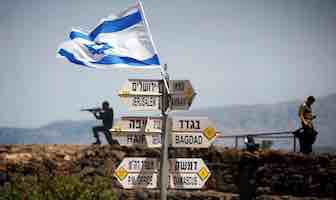 At his meeting with Prime Minister Benjamin Netanyahu on March 25, 2019, President Donald Trump signed a presidential proclamation recognizing Israel's sovereignty over the Golan Heights. This occurred more than 37 years after the Knesset ratified a bill in December 1981 extending Israeli jurisdiction over the Golan Heights, a measure that notwithstanding the denials by then-Prime Minister Menahem Begin was tantamount to annexation of the Golan Heights to Israel.
At his meeting with Prime Minister Benjamin Netanyahu on March 25, 2019, President Donald Trump signed a presidential proclamation recognizing Israel's sovereignty over the Golan Heights. This occurred more than 37 years after the Knesset ratified a bill in December 1981 extending Israeli jurisdiction over the Golan Heights, a measure that notwithstanding the denials by then-Prime Minister Menahem Begin was tantamount to annexation of the Golan Heights to Israel.
 March 2019 marks the fortieth anniversary of the peace treaty between Israel and Egypt. This signed agreement affirmed peace as the strategic choice of both countries, and in turn distanced them from the danger of war. Over the years, the peace has survived challenges and upheavals, and provided tightened security cooperation around shared interests. However, relations between leaderships and security establishment are not enough, and the time has come to deepen the roots of peace between the two peoples. Reinforcing the civilian layer of the peace will benefit all parties: Israel will gain a closer bilateral axis with Egypt and deeper regional cooperation; and Egypt will reap the economic and technological fruits of cooperation with Israel. Although emotional and political barriers still exist on both sides, particularly in Egypt, there are signs of greater openness among the Egyptian public to relationships with Israel.
March 2019 marks the fortieth anniversary of the peace treaty between Israel and Egypt. This signed agreement affirmed peace as the strategic choice of both countries, and in turn distanced them from the danger of war. Over the years, the peace has survived challenges and upheavals, and provided tightened security cooperation around shared interests. However, relations between leaderships and security establishment are not enough, and the time has come to deepen the roots of peace between the two peoples. Reinforcing the civilian layer of the peace will benefit all parties: Israel will gain a closer bilateral axis with Egypt and deeper regional cooperation; and Egypt will reap the economic and technological fruits of cooperation with Israel. Although emotional and political barriers still exist on both sides, particularly in Egypt, there are signs of greater openness among the Egyptian public to relationships with Israel.
 The public debate about the readiness of the ground forces for war intensified following the report issued in September 2018 by Maj. Gen. (res.) Yitzhak Brick before concluding his term as IDF ombudsman in January 2019. This classified report followed the ombudsman's report issued in mid-2018.
The public debate about the readiness of the ground forces for war intensified following the report issued in September 2018 by Maj. Gen. (res.) Yitzhak Brick before concluding his term as IDF ombudsman in January 2019. This classified report followed the ombudsman's report issued in mid-2018.
 In recent months, the parliaments in Ireland and in Chile took unprecedented measures that place severe limitations on economic trade with the settlements in the West Bank. Although at this stage these decisions are not binding and their direct impact is limited, their acceptance reflects the illegitimacy many international actors attribute to the settlements and their willingness to take concrete action against them.
In recent months, the parliaments in Ireland and in Chile took unprecedented measures that place severe limitations on economic trade with the settlements in the West Bank. Although at this stage these decisions are not binding and their direct impact is limited, their acceptance reflects the illegitimacy many international actors attribute to the settlements and their willingness to take concrete action against them.
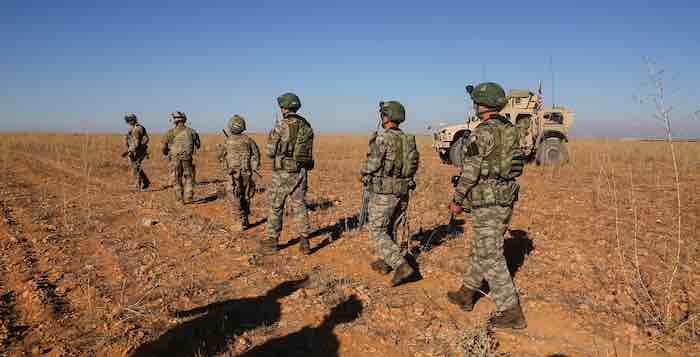 For the United States, which still has interests in the Middle East, a hasty withdrawal of forces from Syria weakens its influence on processes in the region and limits its room to maneuver in the face of existing challenges.
For the United States, which still has interests in the Middle East, a hasty withdrawal of forces from Syria weakens its influence on processes in the region and limits its room to maneuver in the face of existing challenges.
 A recent wave of terrorist attacks in the West Bank and East Jerusalem featured modes of action familiar from the past: shooting from passing vehicles, infiltration of a Jewish settlement, stabbing, and car-ramming. These latest incidents brought the number of Israelis killed in terror attacks in the past year to 13. Shooting attacks on the roads, particularly from passing vehicles, have proven to be the most effective in terms of causing casualties, and also provide the cell launching the attack the greatest chances of survival. The two shooting incidents, which were the most serious attacks in this wave, are attributed to the Hamas infrastructure in the Ramallah area.
A recent wave of terrorist attacks in the West Bank and East Jerusalem featured modes of action familiar from the past: shooting from passing vehicles, infiltration of a Jewish settlement, stabbing, and car-ramming. These latest incidents brought the number of Israelis killed in terror attacks in the past year to 13. Shooting attacks on the roads, particularly from passing vehicles, have proven to be the most effective in terms of causing casualties, and also provide the cell launching the attack the greatest chances of survival. The two shooting incidents, which were the most serious attacks in this wave, are attributed to the Hamas infrastructure in the Ramallah area.
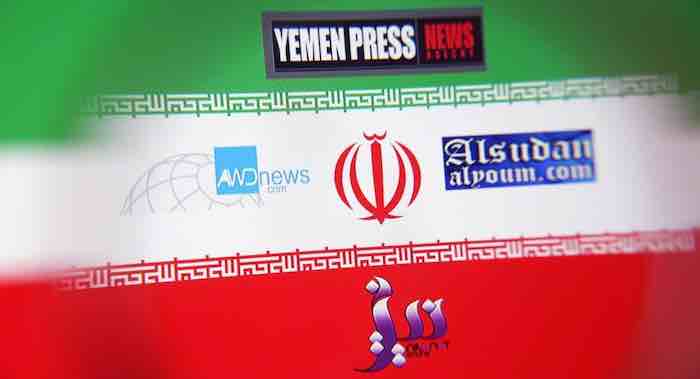 In recent months, the increasingly tense relations between Tehran and Washington have been manifested again in cyberspace. Over the past six months, cyber security firms and technology companies have exposed extensive Iranian cognitive-related activity in cyberspace aimed primarily at the US public. Fire-Eye Ltd., a cyber security company, issued a warning about many fake news sites and profiles on Facebook and Twitter that in its assessment were operated by the Iranian regime as part of its cyber influence campaign.
In recent months, the increasingly tense relations between Tehran and Washington have been manifested again in cyberspace. Over the past six months, cyber security firms and technology companies have exposed extensive Iranian cognitive-related activity in cyberspace aimed primarily at the US public. Fire-Eye Ltd., a cyber security company, issued a warning about many fake news sites and profiles on Facebook and Twitter that in its assessment were operated by the Iranian regime as part of its cyber influence campaign.
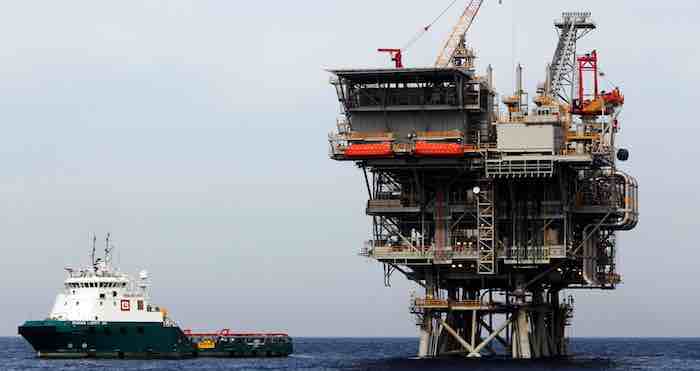 On February 19, 2018, the Israeli-American consortium that owns natural gas concessions in Israel's exclusive economic zone (EEZ), including gas fields Tamar and Leviathan, announced an agreement with the Egyptian Delphinus company. According to the agreement, estimated at $15 billion, an annual 3.5 BCM will be sold from each field, beginning in 2019. As such, Tamar, which is already active, and Leviathan, are together to supply 64 BCM over the next decade.
On February 19, 2018, the Israeli-American consortium that owns natural gas concessions in Israel's exclusive economic zone (EEZ), including gas fields Tamar and Leviathan, announced an agreement with the Egyptian Delphinus company. According to the agreement, estimated at $15 billion, an annual 3.5 BCM will be sold from each field, beginning in 2019. As such, Tamar, which is already active, and Leviathan, are together to supply 64 BCM over the next decade.
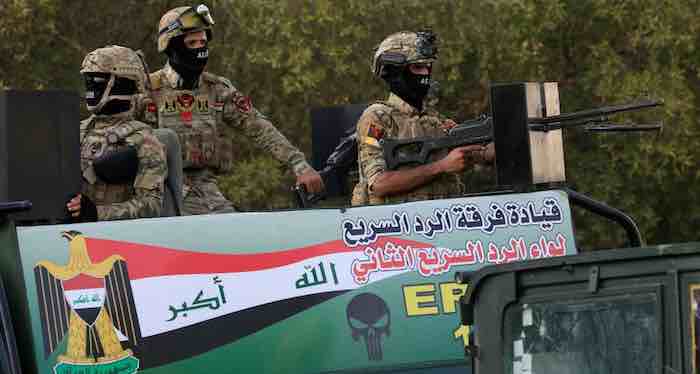 The US administration blamed Iran for the September 2018 rocket attacks against the US consulate building in Basra, Iraq, claiming they were carried out by Shiite militia forces. The administration announced the transfer of its diplomatic staff to the embassy in Baghdad, and senior US officials have threatened that Iran will pay a heavy price if it strikes American targets.
The US administration blamed Iran for the September 2018 rocket attacks against the US consulate building in Basra, Iraq, claiming they were carried out by Shiite militia forces. The administration announced the transfer of its diplomatic staff to the embassy in Baghdad, and senior US officials have threatened that Iran will pay a heavy price if it strikes American targets.
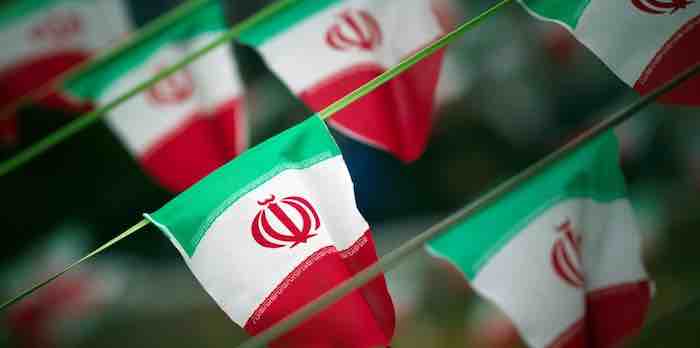 In recent months the reformist camp in Iran has been engaged in an intense debate about the movement’s future. This internal debate reflects growing concern among various sections of the Iranian establishment regarding the increasing influence of radical elements (“subversives”) who oppose both main political camps (the conservatives and the reformists) and challenge the very existence of the regime.
In recent months the reformist camp in Iran has been engaged in an intense debate about the movement’s future. This internal debate reflects growing concern among various sections of the Iranian establishment regarding the increasing influence of radical elements (“subversives”) who oppose both main political camps (the conservatives and the reformists) and challenge the very existence of the regime.
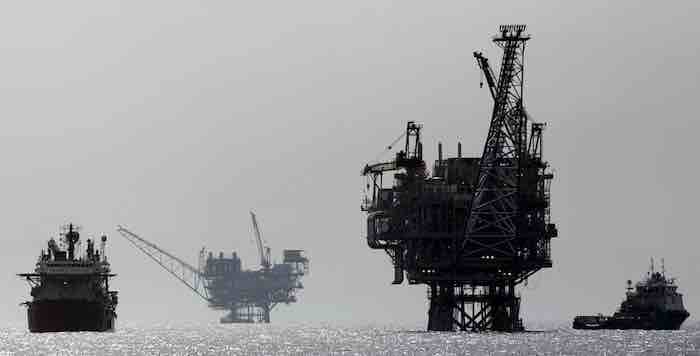 Two developments of recent weeks threaten to reduce significantly the possibility of exporting Israel’s natural gas. One is Erdogan’s victory in the Turkish elections and the expansion of his powers, which reduce and perhaps eliminate the chances of an underwater gas pipeline from Israel to Turkey. The second is initial reports regarding new gas reserves off the coast of Egypt, which threaten the existing deal to export gas from Israel to Egypt, as well as Israel's plan to make use of Egypt's liquefaction facilities to export liquid gas to Europe.
Two developments of recent weeks threaten to reduce significantly the possibility of exporting Israel’s natural gas. One is Erdogan’s victory in the Turkish elections and the expansion of his powers, which reduce and perhaps eliminate the chances of an underwater gas pipeline from Israel to Turkey. The second is initial reports regarding new gas reserves off the coast of Egypt, which threaten the existing deal to export gas from Israel to Egypt, as well as Israel's plan to make use of Egypt's liquefaction facilities to export liquid gas to Europe.
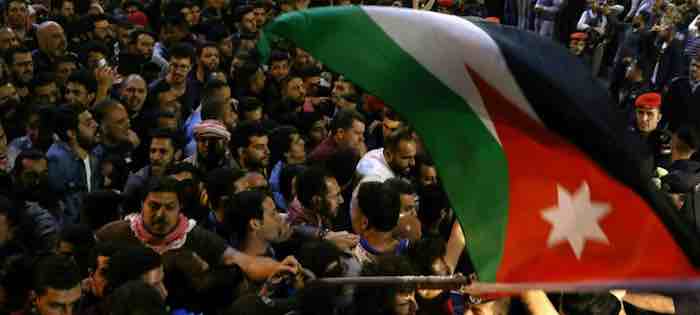 For several days now, thousands of Jordanians have been demonstrating against the Jordanian government and Hani al-Mulki, who, until June 4, had been serving as its prime minister. The demonstrators are protesting the government’s intention to enforce more meticulous collection of taxes, raise the tax rate, and increase the prices of products for which demand is virtually inflexible,
For several days now, thousands of Jordanians have been demonstrating against the Jordanian government and Hani al-Mulki, who, until June 4, had been serving as its prime minister. The demonstrators are protesting the government’s intention to enforce more meticulous collection of taxes, raise the tax rate, and increase the prices of products for which demand is virtually inflexible,
 In view of the public promise by senior Iranian spokespersons that Israel would soon weep over its soldiers just as Iran mourned its soldiers, it remains to be seen if and how Iran will retaliate against Israel’s recent broad counter-attack against Iranian targets in Syria: with what intensity, with what method, and in what location.
In view of the public promise by senior Iranian spokespersons that Israel would soon weep over its soldiers just as Iran mourned its soldiers, it remains to be seen if and how Iran will retaliate against Israel’s recent broad counter-attack against Iranian targets in Syria: with what intensity, with what method, and in what location.
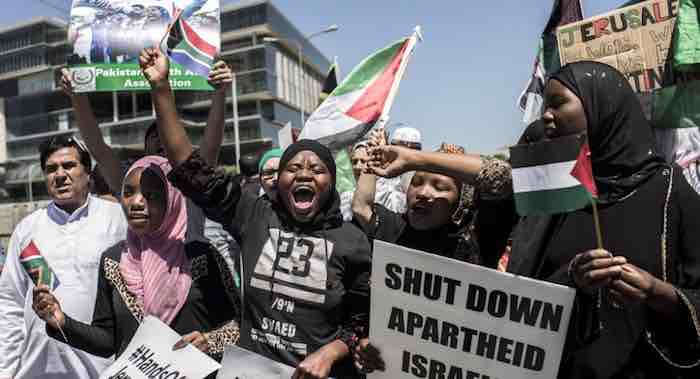 Over the past 14 years Israel Apartheid Week (IAW) has been observed in various countries across the globe, among them the United States, Britain, Canada, and South Africa. The "week" is typically implemented on and off university campuses during specific days between mid-February and mid-April. As opposed to criticism against particular, concrete policies of the Israeli government, IAW encompasses harsh anti-Israel activity, traditionally in the form of alleging linkages and similarities between Israel and apartheid South Africa – with the aim of delegitimizing and isolating Israel internationally.
Over the past 14 years Israel Apartheid Week (IAW) has been observed in various countries across the globe, among them the United States, Britain, Canada, and South Africa. The "week" is typically implemented on and off university campuses during specific days between mid-February and mid-April. As opposed to criticism against particular, concrete policies of the Israeli government, IAW encompasses harsh anti-Israel activity, traditionally in the form of alleging linkages and similarities between Israel and apartheid South Africa – with the aim of delegitimizing and isolating Israel internationally.
 As expected, Abdel Fattah el-Sisi was reelected Egyptian president in late March 2018, this time, with 97.08 percent of the vote. Only 41.05 percent of eligible voters voted in these elections, compared with 47.5 percent in the 2014 elections and 51.85 percent in the 2012 elections, although the elections continued for three days and despite threats (later proven empty) to fine any eligible voter who did not exercise his right to vote 500 Egyptian pounds ($28, one sixth of the average monthly wage in Egypt).
As expected, Abdel Fattah el-Sisi was reelected Egyptian president in late March 2018, this time, with 97.08 percent of the vote. Only 41.05 percent of eligible voters voted in these elections, compared with 47.5 percent in the 2014 elections and 51.85 percent in the 2012 elections, although the elections continued for three days and despite threats (later proven empty) to fine any eligible voter who did not exercise his right to vote 500 Egyptian pounds ($28, one sixth of the average monthly wage in Egypt).
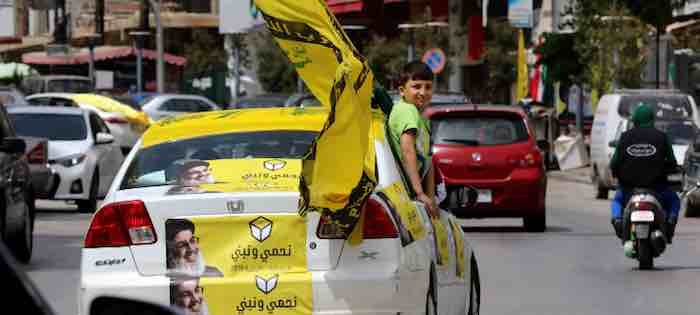 On May 6, 2018, parliamentary elections were held in Lebanon for the first time since 2009. The results – which, in stark contrast to elections in other Arab countries, were held in a free and democratic atmosphere – show that the Shia bloc grew stronger, mainly at the expense of the political party of Lebanese Prime Minister Saad al-Hariri.
On May 6, 2018, parliamentary elections were held in Lebanon for the first time since 2009. The results – which, in stark contrast to elections in other Arab countries, were held in a free and democratic atmosphere – show that the Shia bloc grew stronger, mainly at the expense of the political party of Lebanese Prime Minister Saad al-Hariri.
 In January 2018, with little fanfare, the United States and Egypt signed a bilateral communications security agreement known as the Communications Interoperability and Security Memorandum of Agreement (CISMOA), which protects and regulates the use of sensitive American avionics and communications systems. Until now, Cairo refused to sign CISMOA, objecting to the invasive access it accords the US to Egypt’s facilities and communications systems.
In January 2018, with little fanfare, the United States and Egypt signed a bilateral communications security agreement known as the Communications Interoperability and Security Memorandum of Agreement (CISMOA), which protects and regulates the use of sensitive American avionics and communications systems. Until now, Cairo refused to sign CISMOA, objecting to the invasive access it accords the US to Egypt’s facilities and communications systems.